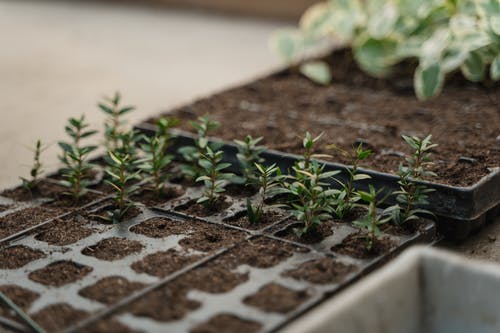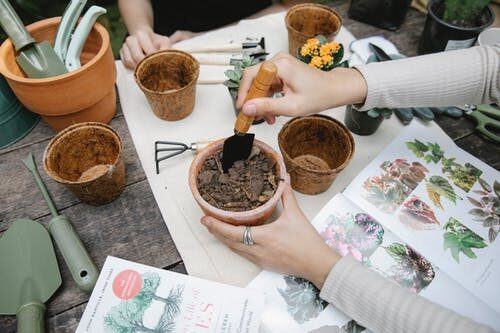Maintaining a beautiful garden doesn’t have to mean spending a small fortune. With a little bit of creativity and planning there are numerous ways to keep your garden in tip top condition without having to reach for your wallet. So without further ado let’s take a look at just a few of our best tips for gardening on a budget.
- Grow from seeds
Seeds are far cheaper to buy than ready grown plants and so choosing to grow from seed will save you a huge amount of money in the long run. You can buy a packet of seeds from as little as 50p and whether you’re looking to plant a veg plot or create a blooming flower bed a little really does a long way when it comes to gardening with seeds.
- Swap Seeds
When you buy a packet of seeds you’ll normally only need to sow a pinch or two meaning you’ll have a large amount leftover. Rather than letting this go to waste, why not do a swap with a friend? It will benefit you both and prevent you having to spend more money on another packet. There are also seed swapping communities across the country where gardeners can meet and swap their seeds, a great opportunity to try out a variety of different produce.
- Take cuttings
Most plants grow incredibly well from cuttings, and the best part? You don’t have to spend a penny. Ask friends and family if you can take cuttings from their gardens and vice versa, this is a great way to increase variety in your garden without buying any new plants. When taking a cutting, just make sure that the original plant is healthy as this is important to ensuring the cutting will grow effectively when you come to replant it.

- Make your own compost
Making your own compost is a lot easier than you might think and it’s also a great way to put food and other waste to good use. The perfect compost is made up of an even mix of ‘green materials’ such as grass cuttings and veg peelings and ‘brown materials’ including fallen leaves and twigs. You can also add wood ash to your compost heap to enhance growth and use it as a natural fertilizer to apply directly to the soil.
- Buy second hand furniture and equipment
Don’t feel like you need to buy all your equipment brand new. With a little bit of research it’s really easy to find some amazing second hand bargains online where you can get garden furniture and tools for as little as £10. When you take your next trip to your local recycling center it’s also a great idea to check out the unwanted items- you’ll be amazed and some of the pieces you can find.
- Planning is everything
If you have any leftover seeds keep them sealed in a foil sachet and in a dry place. This means you can use them next year rather than buying new ones. You can also encourage spent bulbs to reflower in future years by removing their seeds heads, leaving their foliage as it is and feeding and watering them. When you do need to buy new plants buy perennials rather than annuals. Whilst annual plants flower and die in one season, perennials grow year after year and so you don’t have to keep replacing them.

